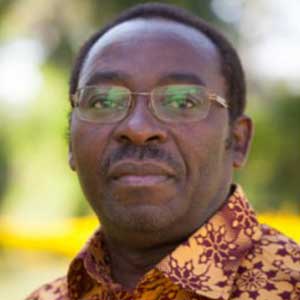
EL BATAN, Mexico (CIMMYT) – Regional and national support for conservation agriculture is key to achieving widespread sustainable production intensification, said Saidi Mkomwa, CEO of the African Conservation Tillage Network (ACT).
Increased uptake of conservation agriculture, soil management practices involving minimal soil disturbance, permanent soil cover and crop rotations used to boost sustainable agriculture and add to its profitability, will benefit from coordinated promotion through regional bodies and national governments, said Mkomwa, who will speak at a conference to mark the 50th anniversary of the International Maize and Wheat Improvement Center (CIMMYT) on Wednesday.
CIMMYT research and programs supporting conservation agriculture’s greater sustainable productivity have helped organizations, governments and their institutions expand efforts, but to have real impact against challenges climate change and reduced resources increased high-level action is needed, he said.
Mkomwa will take part in a panel discussion titled, “The contribution farming systems research in scaling improved management practices and technical innovations” during the CIMMYT 50th anniversary conference in Mexico.
He shares his opinions on agricultural development in the following interview.
Q: What do you hope to contribute to the CIMMYT conference?
To congratulate CIMMYT on their 50 years of unique contributions such as their contribution to the Green Revolution, which pulled millions of people out of hunger. This is also an opportunity to remind CIMMYT of their former wheat breeder and father of the Green Revolution Borlaugs’ 1970’s prophecy, that a second Green Revolution will be necessary in 20 to 30 years, to make the bounty everlasting. The next Green Revolution challenged also by climate change, is being compelled to focus on the new food frontiers – smallholder rainfed agriculture in the semi-arid regions, which are also home to the millions of the hungry and the poor. CIMMYT is already researching and empowering farmers (particularly in Southern Africa) to adapt and adopt conservation agriculture as means to achieving sustainable production intensification. What could add value to this effort is more effective and higher level leadership and coordination of such activities which can empower the African Union’s Africa’s Comprehensive Africa Agriculture Development Programme (CAADP) and national governments to support and invest in relatively low cost conservation agriculture for sustainable intensification.
Q: What is significant about CIMMYT: What role has CIMMYT played in your area of work?
CIMMYT has expertise and experience in plant breeding and promoting best performing crop cultivars as well as in research on conservation agriculture systems and practices that is capable of intensifying farming without degrading natural resources. CIMMYT’s research on conservation agriculture has helped to generate reliable scientific evidence and technologies in support of conservation agriculture as the best option for sustainable production intensification by smallholder farmers in Africa. This work has helped many governments and their institutions and other organizations in Africa, including ACT, to expand their effort to introduce and spread conservation agriculture.
Q: What are the key challenges the world faces into the future?
The conventional tillage agriculture has become unfit for meeting future food security sustainably and is increasingly being replaced with conservation conservation because of its greater productivity, profitability, efficiency, resilience and regenerative qualities. Availability and efficient utilization of production inputs – with specific focus on water, fertilizers and fuel – which were essential in the Green Revolution, become crucial as supplies dwindle and costs escalate. Their manufacture or use in conventional tillage agriculture further contributes to GHG emissions but can be minimized by adopting conservation agriculture systems as widely as possible across Africa and beyond.
Key challenges that are faced globally include the need to adopt conservation agriculture in response to sub-optimal yield plateau and profit margins prevailing in most countries; loss of biodiversity and ecosystem services, soil degradation and erosion; loss of efficiency and resilience; and greater need for research, education and extension systems to overcome inadequate level of staff and farmer capacity.
 Climate adaptation and mitigation
Climate adaptation and mitigation 
